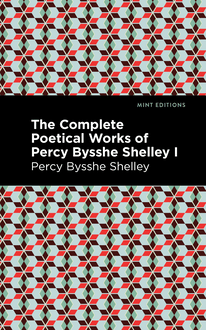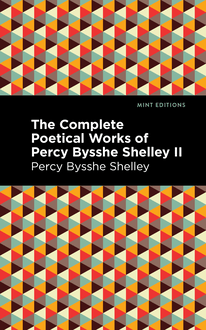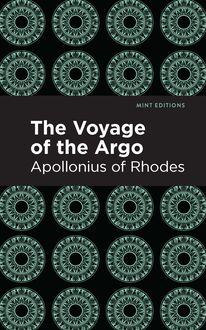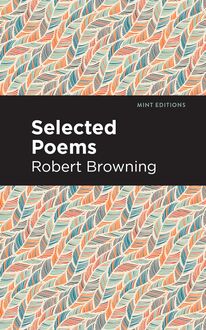-
 Univers
Univers
-
 Ebooks
Ebooks
-
 Livres audio
Livres audio
-
 Presse
Presse
-
 Podcasts
Podcasts
-
 BD
BD
-
 Documents
Documents
-
- Cours
- Révisions
- Ressources pédagogiques
- Sciences de l’éducation
- Manuels scolaires
- Langues
- Travaux de classe
- Annales de BEP
- Etudes supérieures
- Maternelle et primaire
- Fiches de lecture
- Orientation scolaire
- Méthodologie
- Corrigés de devoir
- Annales d’examens et concours
- Annales du bac
- Annales du brevet
- Rapports de stage
La lecture à portée de main

Vous pourrez modifier la taille du texte de cet ouvrage
Découvre YouScribe en t'inscrivant gratuitement
Je m'inscrisDécouvre YouScribe en t'inscrivant gratuitement
Je m'inscrisEn savoir plus
Vous pourrez modifier la taille du texte de cet ouvrage
En savoir plus

Description
“The first taste I had for books came to me from my pleasure in the fables of the Metamorphoses of Ovid. For at about seven or eight years of age I would steal away from any other pleasure to read them, inasmuch as this language was my mother tongue, and it was the easiest book I knew and the best suited by its content to my tender age.” –Michel de Montaigne
The Lover’s Assistant; or, New Art of Love (1760) is an updated translation of Ovid’s Ars Amatoria; or, The Art of Love (2 AD) by English satirist Henry Fielding. Divided into three books, Ars Amatoria; or, The Art of Love was immensely popular—if a little controversial—in its time, and has survived numerous charges of indecency over the centuries. For the modern reader, it should prove a surprisingly relatable work on intimacy from an author of the ancient world. Fielding’s translation, of the first book alone, remains true to Ovid’s Latin while updating its examples and historical context for the contemporary English reader.
At times serious, at others humorous, The Lover’s Assistant; or, New Art of Love uses a mix of down-to-earth examples and relatable references to mythology in order to offer salient advice for the reader longing for love. Maintaining much of Ovid’s content, Fielding replaces the context of the poem—ancient Rome—with that of his contemporary England. Topics include etiquette, remembering birthdays, avoiding unhealthy jealousy, being open to older and younger lovers, and nurturing honesty. With his wry wit and clear-eyed sense of English aristocratic life, Fielding—who is seen as a pioneer of English literature for his work, including the comic novel Tom Jones (1749)—provides a loyal reinterpretation of Ovid’s classic study of romance between men and women. The Lover’s Assistant; or, New Art of Love, although frequently tongue-in-cheek, is an earnest and effective attempt to enlighten and encourage its readers to partake—responsibly—in one of life’s greatest pleasures.
With a beautifully designed cover and professionally typeset manuscript, this edition of Ovid’s The Lover’s Assistant; or, New Art of Love is a classic work of Roman literature reimagined for modern readers.
Sujets
Informations
| Publié par | Mint Editions |
| Date de parution | 20 avril 2021 |
| Nombre de lectures | 2 |
| EAN13 | 9781513285269 |
| Langue | English |
| Poids de l'ouvrage | 1 Mo |
Informations légales : prix de location à la page 0,0250€. Cette information est donnée uniquement à titre indicatif conformément à la législation en vigueur.
Extrait
The Lover’s Assistant; Or, New Art of Love
Henry Fielding and Ovid
The Lover’s Assistant; Or, New Art of Love was first published in 1760.
This edition published by Mint Editions 2020.
ISBN 9781513280240 | E-ISBN 9781513285269
Published by Mint Editions®
minteditionbooks.com
Publishing Director: Jennifer Newens
Design & Production: Rachel Lopez Metzger
Project Manager: Micaela Clark
Translated by: Henry T. Riley
Typesetting: Westchester Publishing Services
C ONTENTS Book I
Book I
I f in so learned an Age as this, when Arts and Sciences are risen to such Perfection, there be any Gentleman unskilled in the Art of Loving, let him come to my School; where, if he hath any Genius, he will soon become an Adept: For I would by no means have any young Gentlemen think, that Erudition is unnecessary upon this Occasion. It is well known that the Rules of Art are necessary to the Conduct of a Ship; for which reason, none but able and experienced Seamen are preferred to the Command of one. Rules are necessary even to make a good Coachman, as those Gentlemen who have the Ambition to excel this way very well know. In the same manner is Art required to drive the Chariot of Love well. Now it hath pleased Venus to place me in the Coach-Box: what a Captain is to a Ship, or the Driver to his Chariot, that am I to Love. I own indeed Master Cupid is a little wild, and often stubborn; but he is only a Child, and of an Age to be disciplined: And however fierce the Disposition of a Lad may be, a judicious Schoolmaster knows very well how to correct it: For many a Boy who hath afterwards turned out a Hero, hath when at School very patiently submitted to the Lash, and quietly, at the Word of Command, held out his Hands to be whipt. Duke William himself, when a Lad, very possibly submitted to Correction; and he who was hereafter to become the Terror of his Enemies, might in his Youth have been afraid of his Tutor. Mr. Pointz was his Preceptor: I am the Preceptor of Love. Both these Youths were of a fierce Disposition, both elevated in their Birth. But as the stoutest Ox submits himself to the Yoke, and the most fiery Horse to the Bridle, so shall Love to me. Though he may bend his Bow against my Breast, and shake his Torches at me; no matter: nay, the more he pierces me with his Arrows, the more he burns me, the more severely will I be revenged of him.
But here, Master Apollo , I will tell no lies to my Readers. I do not pretend to have received any Inspiration from you, any more than from Parson Whitefield : And as for Miss Clio and her eight Sisters, I never visit them; nor have I even a Cap-Acquaintance with them. I write from Experience only; and Experto crede Roberto is my Motto. I promise my Readers that I will tell them truth; and if I must, for form sake, invoke any Muse, Venus herself shall be the Person. Sweet Goddess! then be thou present, and smile at my Undertaking. But as for you who cannot smile, I mean you, Prudes, with your screw’d Faces, which may be considered as Signs hung forth before the Door of Virtue, and which perhaps, like other Signs, promise what is not to be found in the House; I desire neither your Favour nor your Company. Good-natur’d Girls are all I write to; and such I promise them may read my Works without a Blush.
Know then, my good Scholar, that art unexperienced in the Art of Love, that this Art consists of three principal Points: First, to select a proper Mistress: Secondly, to win her Affections: And, Thirdly, to preserve your mutual Affection. Of all these therefore we will treat; or, to speak metaphorically, through these three Roads we will drive the Chariot we have undertaken to guide.
First then as to the Choice of a Mistress, to whom you may say, In Thee alone my choice is fixed . Do not believe such a one will fall into your Lap. It will become you to look about sharp for her, and with all your Eyes, I do assure you. And here my first Instruction shall be, where she may most probably be found: For he is a bad Huntsman who would beat about the Royal Exchange for a Hare or a Fox; and not a much better Gunner or Fisherman, who goes a shooting in Somerset-Gardens , or attempts to angle in the magnificent Bason there. As these all know the Places where their Game resort, so must you.
Here then, I by no means advise you to make a long Voyage after a foreign Mistress, as Perseus did, who fetched Andromeda from the Indies ; or Paris , whom nothing would serve but a Grecian Mistress. Your own Country, my Friend, will produce Women which the World cannot equal. Beauties are as plenty in the City of London as Apples in Herefordshire , or Grains of Wheat in Hampshire ; they are indeed as plenty as Fish in the Sea, or Birds in the Air; nay, the Sky hath not more Stars than London hath Beauties: for England , not Cyprus , is the Queen of Love’s favourite Island. Whether you love green Fruit, and which is in the Bud only, or Beauty in its fuller Bloom, or that which is arrived to perfect Ripeness; nay, if nothing but Wisdom or Sagacity will serve your turn, of these too Old England will afford you a sufficient Plenty.
In the pleasant Month of May , repair to Vaux-Hall . Here take your Evening Walk, either round the verdant Scenes, where Nightingales, the only Foreigners who give us their Songs for nothing, warble their most delicious Notes. When your Limbs demand Repose, you may enjoy it in an Alcove, from whence the embattel’d Troops of Venus will pass in review before you. Again, the lofty Dome of Ranelagh invites your Steps. Whether the illustrious Artist took his Model from that House, which as a Reward for their Industry, or for some little regard for their Honey, the benevolent Nature of Man hath conferred on that laborious Animal the Bee: Or whether a more pious Disposition chose this Form from the musical Instrument which summons the whole Parish to Church: Or whether the wondrous Force of Genius, unassisted by any Model, did not of itself strike out this wondrous Architecture; let Kent or Benson inquire. Hither, from every Corner of the Town, repair the loveliest Nymphs. Here too thou may’st survey them, either walking or reposed on Benches at thy Ease. Nor is the Mall to be neglected, where once die brawny Arm of Charles displayed its Strength, and beat his subtle Courtiers at the Play, whence it derives its Name. Nor, Kensington , must thy Gardens be passed by, once the Delight of mighty Caroline , and to the future Age a Monument of her Taste. Here the Charmers draw in sweet Air, and send it forth again in sweeter Sighs, as Tributes to the loved Memory of that mighty Queen.
Attention
En entrant sur cette page, vous certifiez :
- 1. avoir atteint l'âge légal de majorité de votre pays de résidence.
- 2. avoir pris connaissance du caractère érotique de ce document.
- 3. vous engager à ne pas diffuser le contenu de ce document.
- 4. consulter ce document à titre purement personnel en n'impliquant aucune société ou organisme d'État.
- 5. vous engager à mettre en oeuvre tous les moyens existants à ce jour pour empêcher n'importe quel mineur d'accéder à ce document.
- 6. déclarer n'être choqué(e) par aucun type de sexualité.
YouScribe ne pourra pas être tenu responsable en cas de non-respect des points précédemment énumérés. Bonne lecture !
-
 Univers
Univers
-
 Ebooks
Ebooks
-
 Livres audio
Livres audio
-
 Presse
Presse
-
 Podcasts
Podcasts
-
 BD
BD
-
 Documents
Documents
-
Jeunesse
-
Littérature
-
Ressources professionnelles
-
Santé et bien-être
-
Savoirs
-
Education
-
Loisirs et hobbies
-
Art, musique et cinéma
-
Actualité et débat de société
-
Jeunesse
-
Littérature
-
Ressources professionnelles
-
Santé et bien-être
-
Savoirs
-
Education
-
Loisirs et hobbies
-
Art, musique et cinéma
-
Actualité et débat de société
-
Actualités
-
Lifestyle
-
Presse jeunesse
-
Presse professionnelle
-
Pratique
-
Presse sportive
-
Presse internationale
-
Culture & Médias
-
Action et Aventures
-
Science-fiction et Fantasy
-
Société
-
Jeunesse
-
Littérature
-
Ressources professionnelles
-
Santé et bien-être
-
Savoirs
-
Education
-
Loisirs et hobbies
-
Art, musique et cinéma
-
Actualité et débat de société
- Cours
- Révisions
- Ressources pédagogiques
- Sciences de l’éducation
- Manuels scolaires
- Langues
- Travaux de classe
- Annales de BEP
- Etudes supérieures
- Maternelle et primaire
- Fiches de lecture
- Orientation scolaire
- Méthodologie
- Corrigés de devoir
- Annales d’examens et concours
- Annales du bac
- Annales du brevet
- Rapports de stage


















